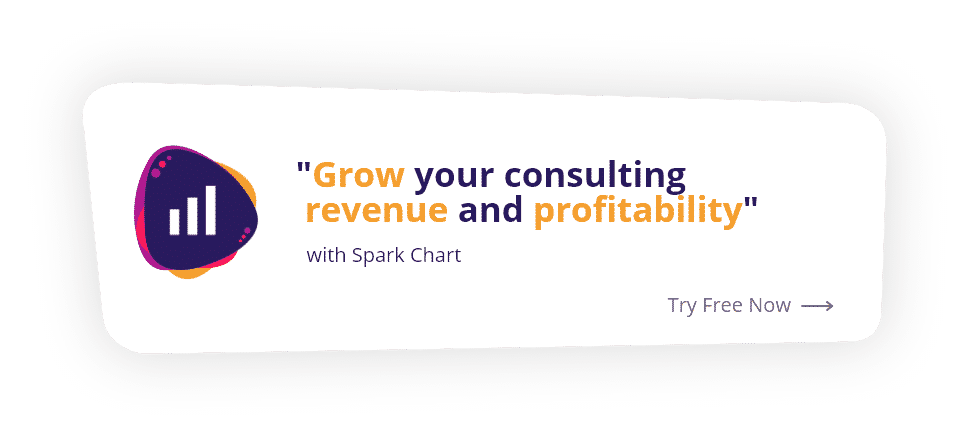How to Grow Consulting Revenue with SWOT Analysis
If you’re working as a business consultant, you’ll know how important it is to have quality information available. If you don’t, it can feel like you’re working in the dark and your efforts will be impacted as a result. One of the key jobs you have as a consultant is to analyse business performance and structures, recommending change where appropriate. Depending on your role, you may even be required to help implement some of that change.
It’s estimated that around 70% of change efforts fail, and while there are a lot of reasons for this, lack of relevant data to inform the change is always going to be a contributing factor. So, how do you make sure you have all of the right information before recommending organisational change? One way is through a comprehensive SWOT analysis.
In the article below we’re going to discuss the benefits of using a SWOT analysis, and how it not only helps your clients but can significantly grow your own consulting revenue.
What is a SWOT Analysis?
A SWOT analysis for businesses is a way to clearly assess the company’s Strengths and Weaknesses, while also identifying Opportunities and Threats within the marketplace (or even inside their walls). SWOT analysis has been used for a number of years, but the principles are still extremely relevant today.
In order to conduct a thorough SWOT analysis, you need to ask and answer the difficult questions. As a business consultant, you’re often dealing directly with management, who aren’t always open to assessing the negative aspects of their business. That’s where your consultancy skills come into play, but another way to get a warts-and-all picture is by conducting surveys with staff and customers too.
Strengths
Whether you’re asking staff, customers or the management team themselves, the questions will be quite similar. Basically, you’re asking what’s great about the business – what are they already doing well. Some question examples might be:
- What advantages does your business have?
- What do you do better than your competitors?
- What makes your business unique?
- What do customers love about your business?
Weaknesses
When determining a business’s weaknesses, getting a broad snapshot from all stakeholders is crucial. Nobody likes to pick apart their own business, meaning managers can often find it hard to identify what’s holding them back. Surveys with staff and customers can be invaluable to ask questions like:
- Where could your business improve?
- Why do you think you might lose customers?
- Why are leads not converting to sales?
- What would customers see as your weaknesses?
- What do competitors offer that you don’t?
Again, this can be an eye-opening experience for managers, but it’s an essential part of the process.
Opportunities
Identifying opportunities is all about finding out what a business can do to improve (and it’s a great way to get your clients thinking positively again after going through the weaknesses). You can ask a range of questions here, and they may look slightly different for each business type, but some common examples are:
- What opportunities can you identify?
- How much competition is in your area?
- Can your business offer something to solve a problem in your market?
- Are parts of your market currently underserviced?
Threats
It’s important to ask your clients about their perceived threats. They could be either internal or external factors, but you need to know about all of them. While acknowledging not all of them are controllable, it’s often possible to at least mitigate the threat or find a way to do things differently. Some common questions may be:
- Are the upcoming legislative changes affecting your industry?
- Do you have financial concerns which are stalling growth?
- Are competitors in your market likely to increase?
- Are technological changes affecting your product or service?
Using SWOT Analysis to Grow Consulting Revenue and Business
If you’re not using surveys and SWOT analysis in your business consultancy, it’s possible that you’re working in the dark. The information gleaned from a SWOT analysis empowers you with a lot of information, and it can dramatically help you grow your own business while providing a better, more complete service for your clients.
Improve Profitability
How much time do you currently spend conducting meetings and face-to-face interviews with your clients? While this is obviously a necessary step in the process, you can often leverage your time better by having surveys pre-prepared. They can even take place before your first in-depth discussions, and form all of the necessary talking points before you start.
By using easy to generate surveys for your SWOT analysis, you can also save time in your preparation. When you’re not spending countless hours coming up with complicated ways to compile your clients’ data, you can spend more time analysing, making action plans, and working with other clients.
Offer New Services and Expand Consulting Engagements
When you go through a comprehensive SWOT analysis, you can clearly see the pain points a business is experiencing. Whether it be with the product itself, their marketing, or even their staffing and daily operations, you’ll pretty quickly identify common problems that all businesses have.
Without this detailed knowledge, you’re just looking at obvious issues and trying to solve them. With the data obtained in a SWOT analysis, you can start thinking much more strategically. In short, you’ll have more tools at your disposal to provide more targeted services for your clients.
With all the enhanced information mentioned above, you’ve now got the ability to really hone in on areas of your client’s business that need attention. For example, if you identify that your client’s marketing is completely inefficient, what started as a broad consultancy gig could now turn into an opportunity to provide intense marketing advice and services.
Your original consultation could expand into a longer-term engagement to oversee a complete overhaul of a company’s IT systems. Essentially, the more detailed data you have, the more chance you have of earning more from each of your clients.
Win New Clients
Finally, word of mouth is a wonderful thing. The fact is, by conducting a thorough SWOT analysis for your clients, you will have far more information and tools available to provide a great service. When you’re able to make genuine business transformations for your clients, they’re going to be much happier with your service – and happy clients tell others.
When you’ve achieved tangible success with your clients, your portfolio and reputation grows, making it easier to win high-quality clients.
SWOT Analysis Surveys for Business Consultants
With Spark Chart, you can generate and customise ready-made surveys for your clients in a matter of minutes. This means less time developing questionnaires and more time analysing important business data for your clients. Using surveys from your clients’ customers, staff and management, you can generate a comprehensive SWOT analysis which not only helps your clients, but lets you expand your current business consultancy.





